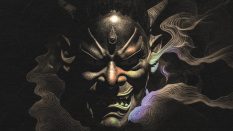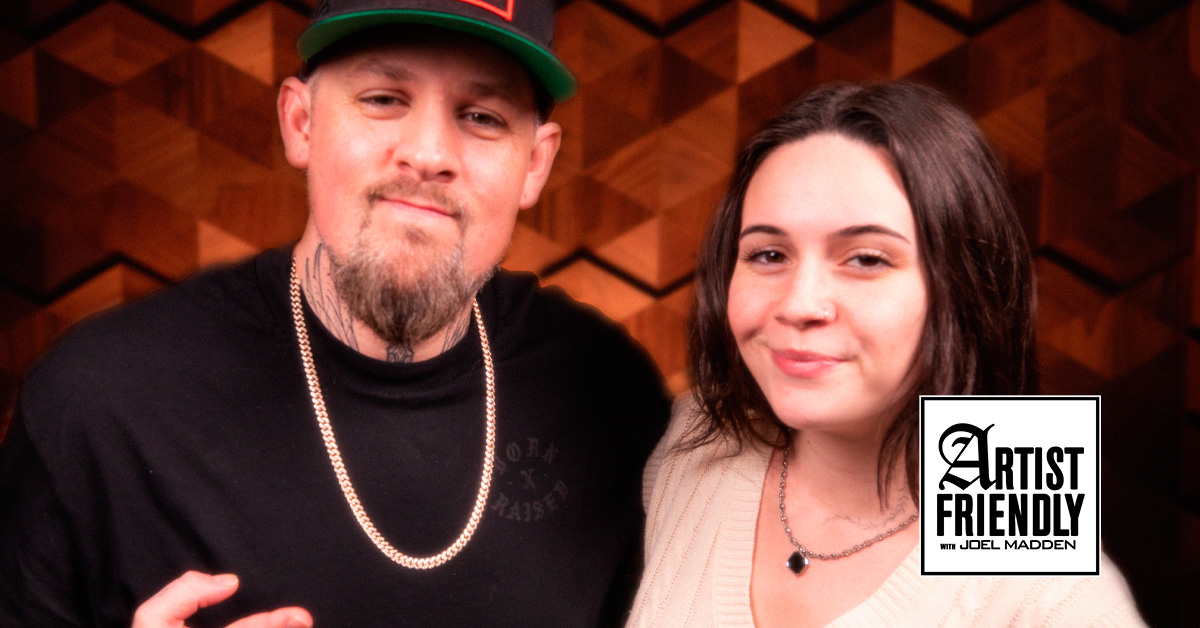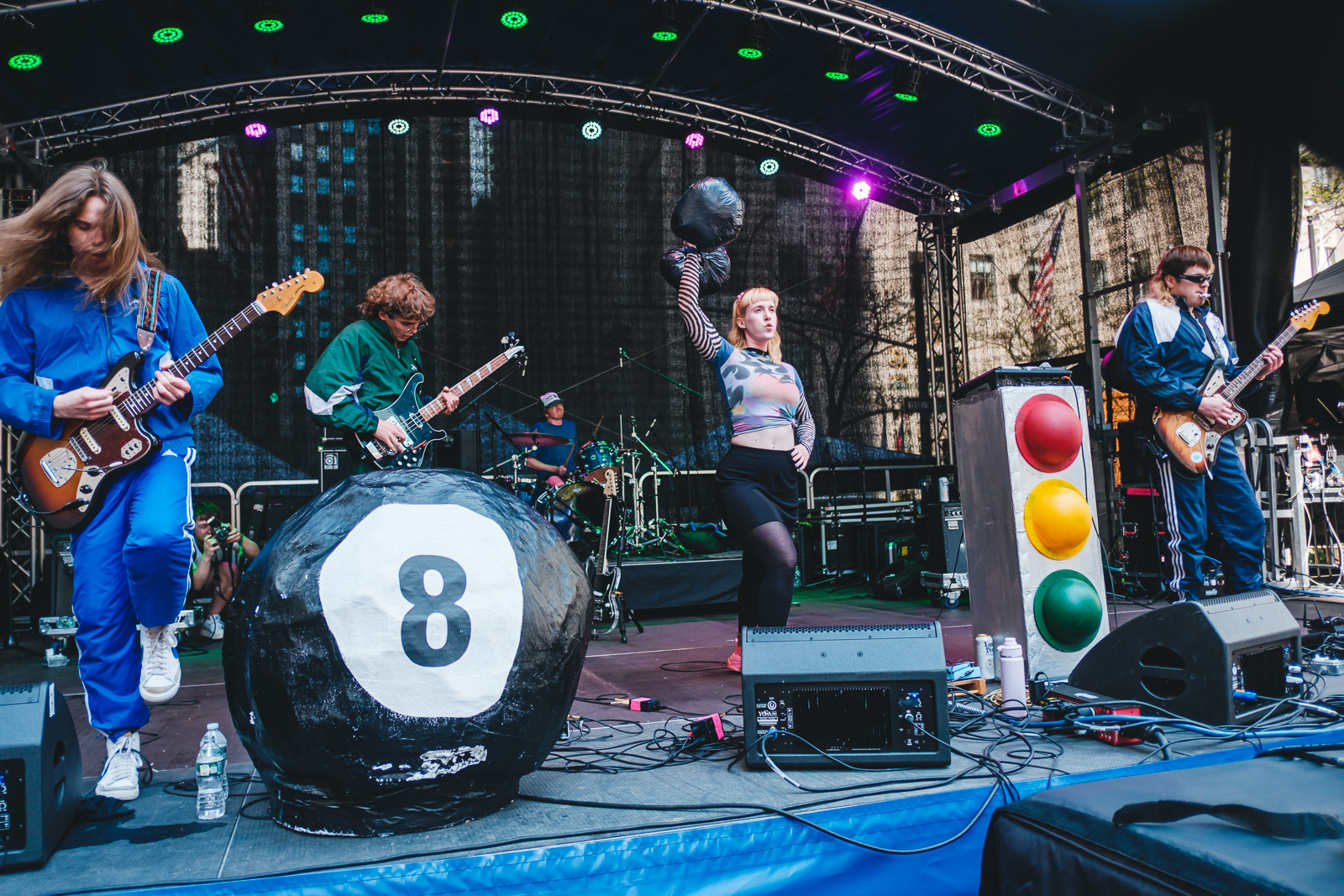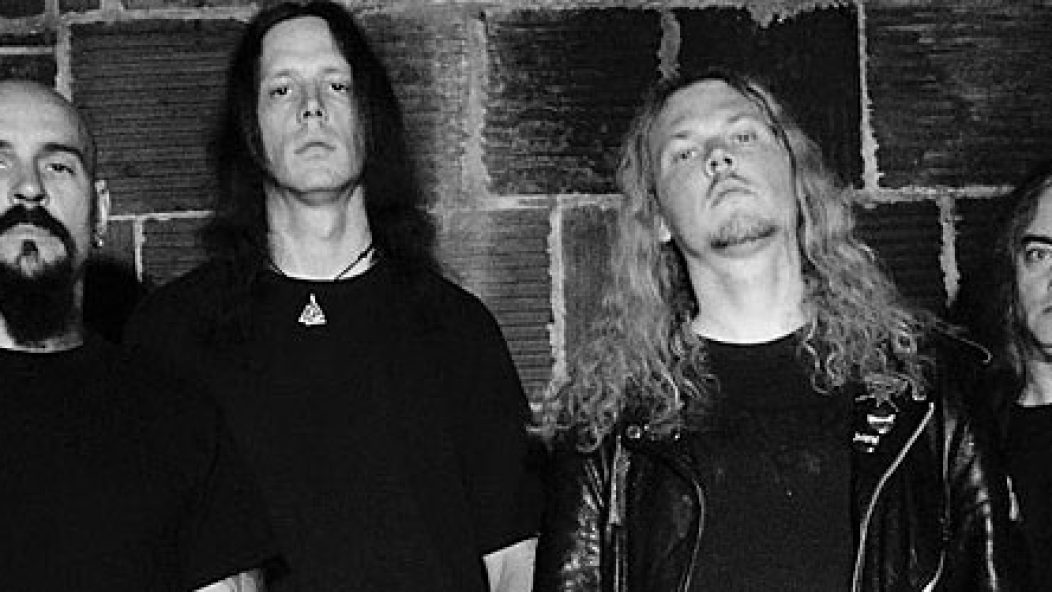
Interview: Incantation's John McEntee
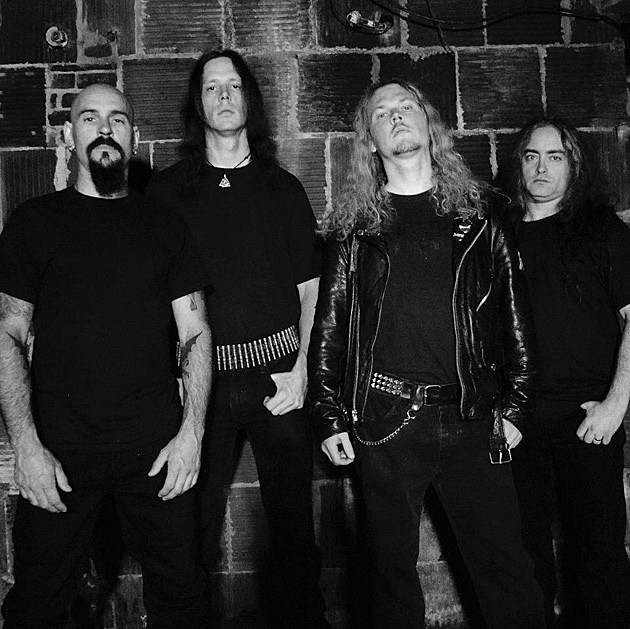
. . .
For 24 years death metal forerunners Incantation haven’t really concerned themselves with the ebb and flow of music trends. It’s a testament to Incantation’s music and indelible influence that vocalist/guitarist and founding member John McEntee foregoes the accolades that normally come with such respect from so many in the heavy music realm. This humility and introspection is poured into every word that he says on the other end of the phone. In contrast to the sneering brutality of Incantation’s music, McEntee is incredibly soft spoken and thoughtful in his answers, offering simply his perspective rather than overarching declarations. It’s not surprising that Incantation’s latest, Vanquish in Vengeance, is no exception to their consistent and reliably relentless sound. The record shows that these death metal overlords have no plans or reason to stop anytime soon.
. . .
After all these years with Incantation and your constant growth as a musician, how have you seen your own journey, and what keeps bringing you back to where you want to create?
The first thing when I was a really young kid, probably around six or sevenish, I was really obsessed with KISS at the time. I didn’t know anything about music whatsoever, but it was a mixture between the over-the-top image they had and just the hard, kind of pseudo-metal sound that they had. I really liked just those heavy guitars and stuff like that. When I started to think about learning to play an instrument, my parents got me a pretty cheap acoustic guitar, and I just couldn’t feel it. It wasn’t right playing the acoustic. They weren’t willing to get me an electric guitar, because I hadn’t yet learned to play the acoustic. I had to wait until I was probably about 13, which would be around ’83 or something, and I got my first electric guitar. From there, I’ve just been pretty obsessed with music.
As far as going back to KISS and stuff, I went from them to AC/DC to Black Sabbath to Iron Maiden, and then Ozzy, and then Exciter. I just had this thing where I guess I always wanted to find something that was a little more over the top than the last thing. It was a raw energy. It was a feeling that just really captured me, and it captured a lot of people. It’s always just stuck with me. It’s almost like a cocky kid just wanting to tell everybody to fuck off kind of thing. I always liked that about heavy metal or death metal. I always want to push the limits further and further with what I do. There’s bands now that are obviously more extreme than we are and faster, but I try to keep things in perspective in my own world. I have my own personal vision of where death metal should be or should go. I’ve had that vision ever since I started with Incantation. I’m more concerned about following my own personal music journey than following any kind of trendy thing like that. I’m not worried about what other bands are doing. I don’t care what Deicide or Suffocation are doing. I mean, more power to them, but it doesn’t matter. I have my own opinions on how music should be, and I just want to work with people who agree with what I agree with, and that’s what we have in the band now, which is great.
I’ve always had a thing where I wanted to have that raw, gritty, cocky attitude with music. That was one of the reasons why I left my old band Revenant. It was a difficult decision at the time, but they just weren’t cuttin’ the mustard as far as being raw anymore. They wanted to go more technical. They wanted to take away some of the grit of what we were doing. They wanted to clean things up. It didn’t make any sense to me at the time. I wanted to play in a band and be the heaviest, the sickest I could possibly be. I would write something, and they would tell me that it was too heavy, and it’s just like that’s not even possible. How can things be too heavy? I was always under the impression of let’s make it as heavy as possible, and then try to make it heavier. That’s the way I look at things. Now, first of all, I’m with people who understand what I like to do, and they like to do what I like to do, and I feel like we’re really capable of doing what we want to do. A lot of stuff early on is really just trial and error, but now it’s like we go through situations more focused. We know what we are, and we know what we want to accomplish. It’s partially working with great people in the band, but it’s also because of experience that we’re a little more focused and 100% more confident with what we do. If people don’t like it, they can piss off. We have to enjoy the music that we’re creating. If we’re gonna worry about what people think, then we should just play another style of music. Death metal should be a personal expression more than a way to be cool or make lots of money or something.
How have you seen the heavy music genre evolve since you first started playing?
I’ve been involved with the death metal scene since pretty early on. It wasn’t even really considered death metal when I was getting into it. There were obvious bands that did it before I did. There was early Necrophagia and Morbid Angel and Death and stuff doing demos, before I was playing in Revenant. There wasn’t a 100% definition of it at that time, though. The music didn’t have to be one way or another, though, and that was the great thing about it. You could be kind of like Morbid Angel or kind of like Death and still be considered death metal or extreme metal. I think a lot of the European bands started getting popular around ’89 or ’90, like Napalm Death or Entombed or Terrorizer, and I think a lot of bands wanted to sound like them. In doing that, they weren’t using their own vision enough to create their own sound. A band like Autopsy or Entombed or something, they were expressing themselves in their own personal way in their own style before so many of these other bands.
A lot of bands got really poppy, like early Suffocation. It got to a point where too many bands were doing it, and to me it just watered down Suffocation. A lot of great bands came out of it, but to me it stunted their growth. It’s better to take all of these bands, jumble them together, then come up with your own unique sound rather than become a Suffocation cover band or a Morbid Angel cover band. I think it really screwed things up that too many musicians were just trying to mimic their favorite band instead of using their own creativity to make their own style. That’s one of the things I feel we’ve been able to do. We’ve been able to create our own style, even though we sound like pure death metal. I think when people hear it, they can tell that it’s something different.
The more the ’90s progressed, the more bands started to get the feeling of death metal, and were a little more concerned with the speed. I’ve always viewed this as a problem. It’s not that I don’t like fast stuff, but death metal isn’t classified as any speed in particular. It’s the feeling in the music. I think a lot of people were playing thrash metal really fast and calling it death metal. For me, it wasn’t the progression that I prefer. Death metal is a darkness, it’s a heaviness. It’s in the aura and not the speed. A lot of bands also started worrying about being super tight. It’s not that being loose is a good thing, but some of the became like dance music or pop music. It’s so over-perfect. Death metal shouldn’t be 100% perfect. Bands fix every little thing in the studio to the point where they take out every bit of personality whatsoever. It sterilizes it.
I think music in general has gone to shit over the last 20 years. The good thing about it is that I think people are starting to appreciate bands like us and Autopsy. Bands that might not be as tight as nails every second of every song, but there’s a personality there that makes our stuff special. There’s a bunch of bands who help move the genre forward, like Autopsy or Immolation, but there’s so many others that just stray away or stagnate. Some people say death metal is limited, but it’s only as limited as you let your mind limit it.
What does your creative process look like – from the moment you step into your headspace to create a song to the finished product?
Different songs come about in different ways. It’s one of those things where I just get inspired sometime. It could either be watching another band live, kicking ass, and it’s something that makes me inspired, or just sometimes I’m thinking things in my head and it feels like I need to get to a guitar or hum it out on my iPhone to try to remember the patterns and stuff. For me, it’s my way of expressing myself. Some people have different things that they’re comfortable with expressing themselves. Some people are writers, painters, but for me it’s music and thinking of strange patterns and different harmonies. It just kind of comes to me.
A lot of it is when I’m together with the guys in the band, and I just sit down and think of something in my head, and I go to my guitar and try to mimic what I’m thinking. I’ll ask the guys if it’s good or if it sucks, and if they like it we go with it. Once we start doing that together it becomes almost like a feeding frenzy where everyone starts feeding off a cool idea and adding their own component to the mixture. I always toss my ideas to the other guys, because a lot of times they come up with another accent to add to it or a different layer. You almost feel like a mad scientist in doing this stuff, because it’s trial and error. We know when it sounds right, because when we play it together there’s a certain power that we feel. It’s an adrenaline rush, man.
On Vanquish in Vengeance, you guys absolutely have that sound where it seems like the compositional process was incredibly congruent.
Man, people have been telling us with the new album that they can feel that same power and that vibe. They can tell that there’s more to the music than just the notes that are played. There’s actual personality to it. The four of our personalities and feelings came through on the album. If you listen to the early days of Incantation, I’ve always said that it’s not the riffs themselves but the feeling you get when you hear the riffs that are important. It’s never been more true than it is today. I’m very proud of what we did, and what we’re doing.
You can never tell what other people are going to think of it, but as long as we’re getting something out of it, and we can listen back and say that it was awesome that we were able to get our personality on that recording or that song, then that’s success. People come up to us all the time and tell us they can feel the aggression, the hatred, the passion on the new album. For us, it’s great that we’re able to share that with people.







